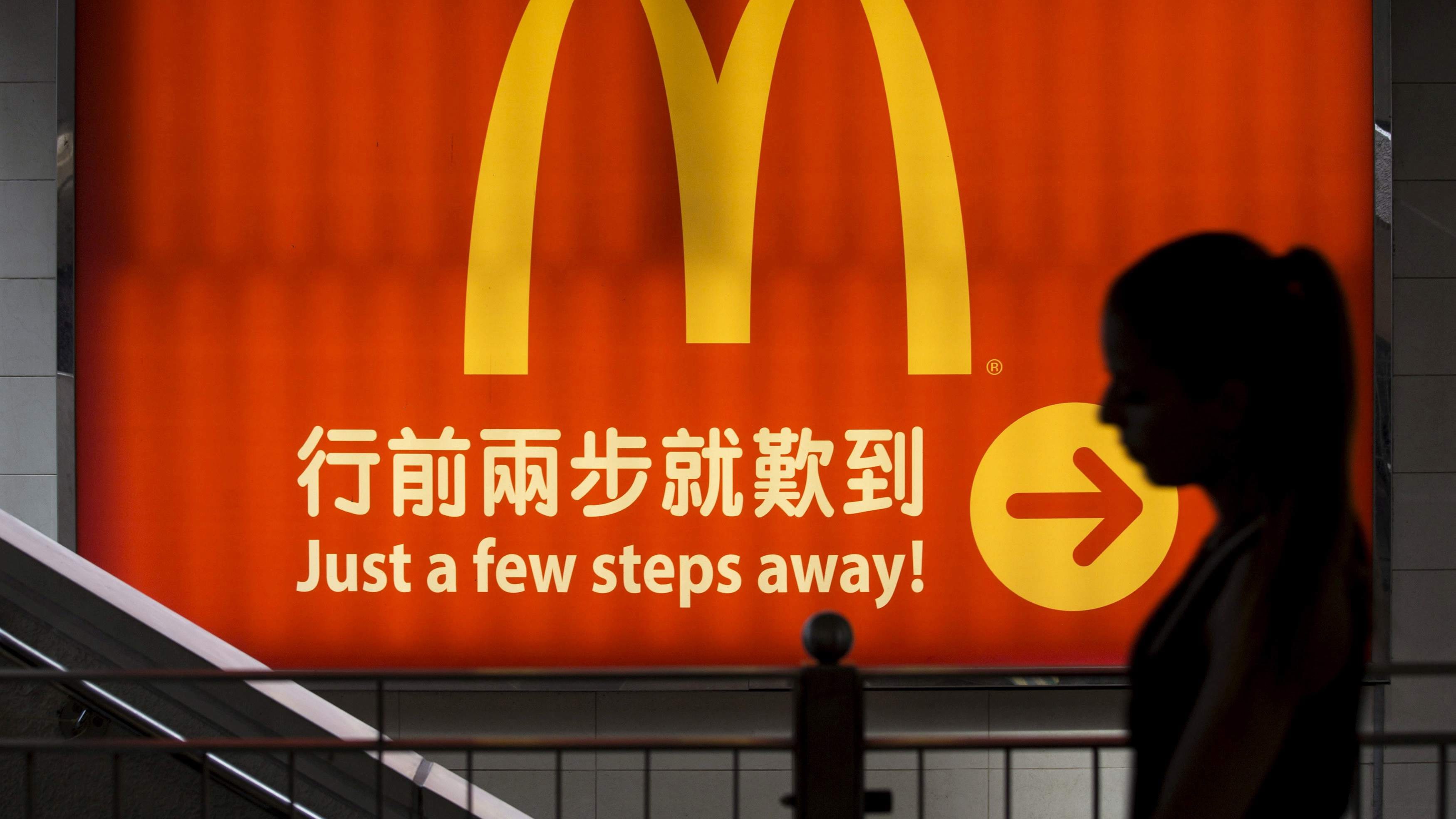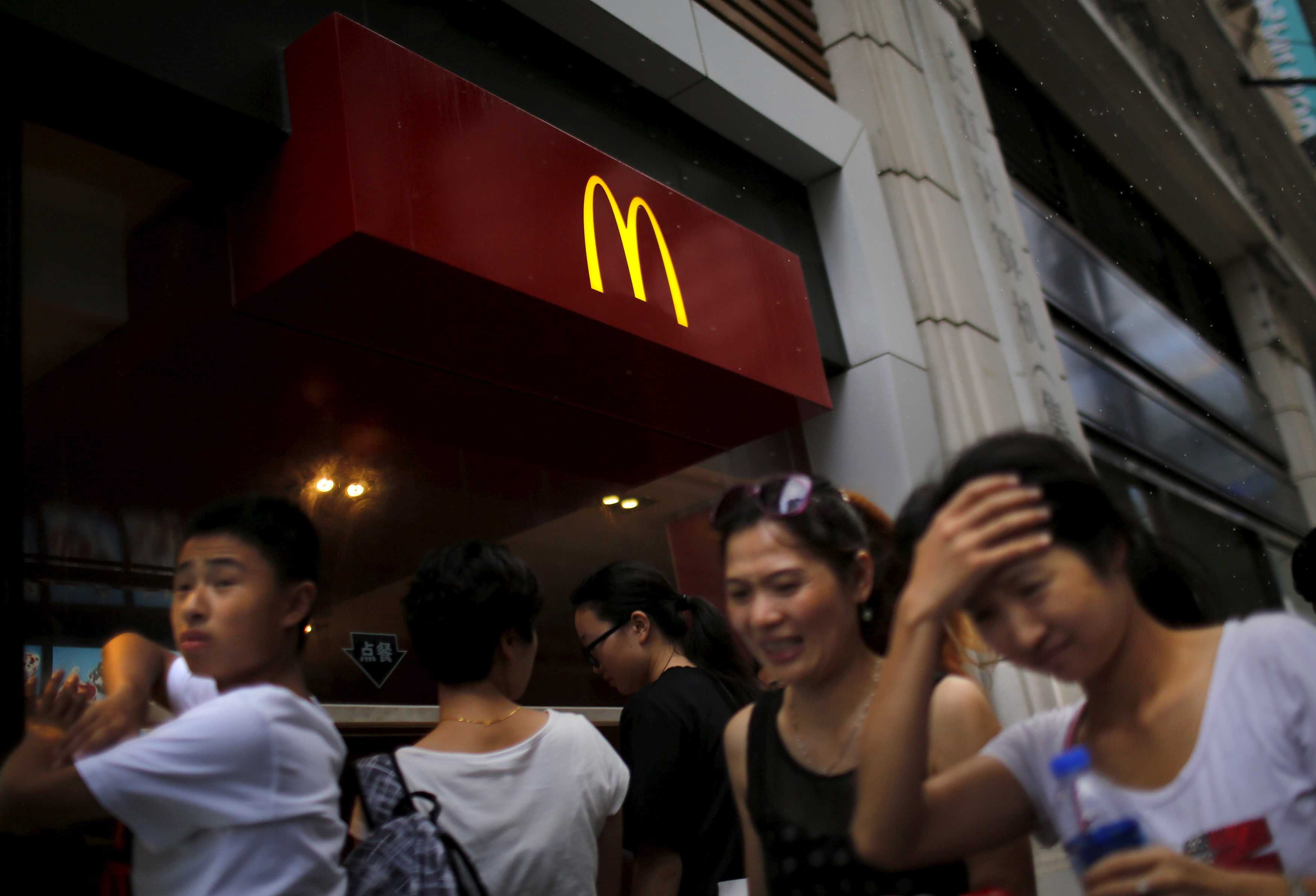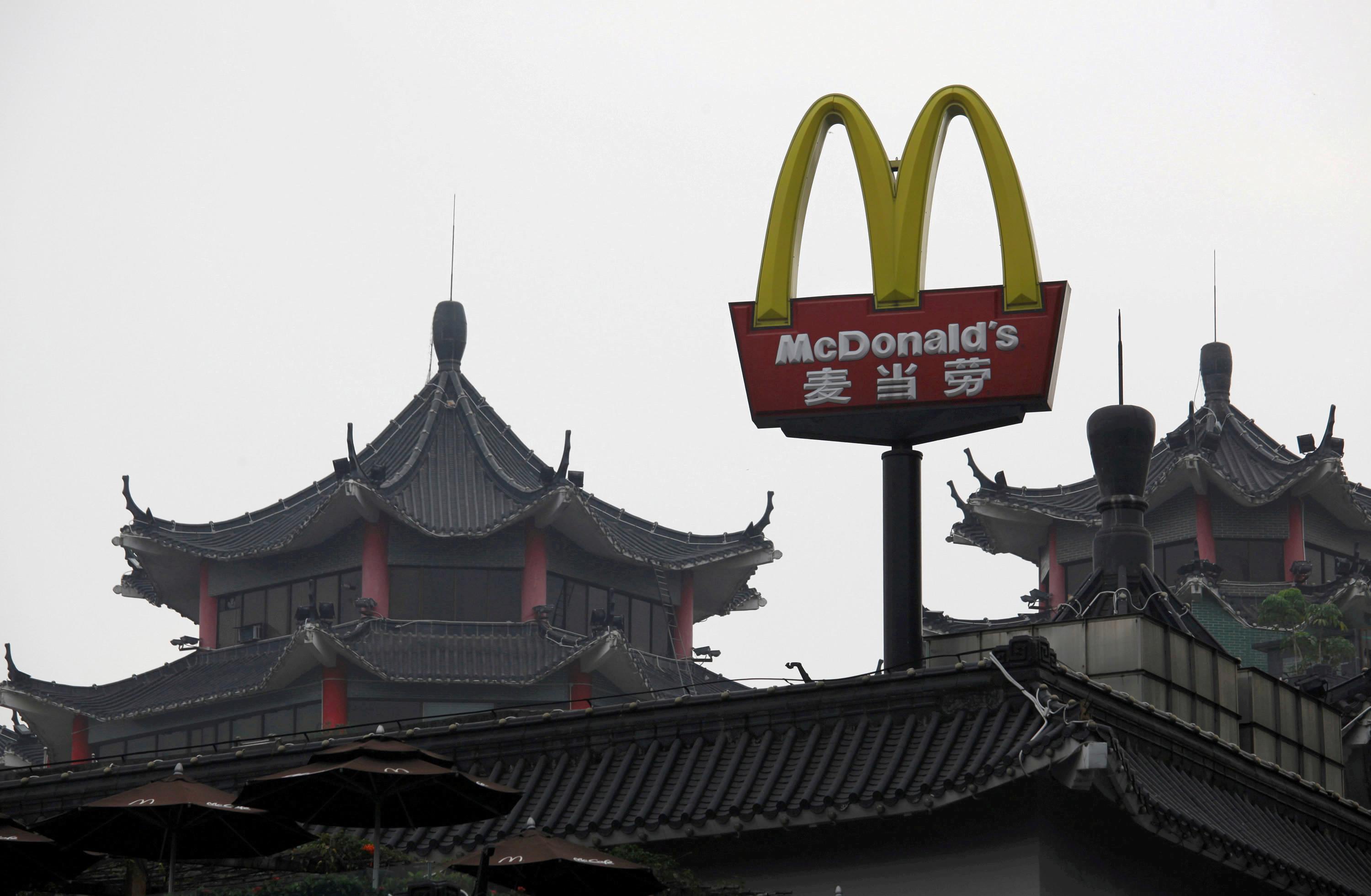
Business
11:46, 26-Jul-2017
Dollar drinks, fancy burgers pull in customers to McDonald's in Q2

McDonald's earning results for the second quarter of 2017, published on Tuesday, proved that customers are still "lovin' it" with global comparable sales the strongest in over five years.
The Golden Arches' stronger-than-expected performance benefited from the introduction of dollar drinks, customized sandwiches and upscale burgers to lure back customers in the US, while also seeing greater traffic globally.
Not long ago the fast-food chain was struggling with sluggish sales over food safety scandals in Asia and negative public perception at home that its meals are unhealthy.
Such concerns drove 500 million US customers into the stores of Wendy's, Burger King and other McDonald's rivals since 2012, and prompted CEO Steve Easterbrook to announce a major overhaul to the system, pledging to reduce layers of management, adapt to customers' tastes and ensure high-quality menu items.
Two years on, the turnaround plan is paying off.

People walk by a McDonald's store in downtown Shanghai, China on July 31, 2014. /Reuters Photo
People walk by a McDonald's store in downtown Shanghai, China on July 31, 2014. /Reuters Photo
Back in the game
Sales at US restaurants open for at least a year climbed 3.9 percent in the second quarter of 2017, and increased 6.6 percent globally, beating analysts' expectations.
Wall Street had forecast a 2.9 percent jump in same-store sales in the US and a growth of 3.7 percent worldwide for the quarter.
Easterbrook was upbeat during the investor conference call.
"Our relentless commitment to running great restaurants and keeping the customer at the center of everything we do is generating broad-based strength and momentum across our entire business," Easterbrook said.
"Our second quarter results demonstrate that customers are responding as we serve hotter, better-tasting food, offer convenience on their terms and provide good value for their money."
Promotions and discounts have reeled customers back in.
Starting April, the burger giant slashed prices on beverages, offering any size of soft drink for 1 US dollar and McCaffe coffee concoctions for less than 4 US dollars. In May, it introduced a line of "signature crafted" sandwiches (5-7 US dollars) which offers customers the choice to pick from three toppings: maple bacon Dijon, sweet BBQ bacon and pico guacamole.
"We're taking purposeful actions to retain customers who visit us today. We've gained lapsed customers and convert casual customers to committed customers," Easterbrook noted, adding that the Oak Brook-based company is reaping the benefits of going digital.

A McDonald's sign is displayed outside its outlet, the first one which opened in
China in 1990, in the southern Chinese city of Shenzhen. /Reuters Photo
A McDonald's sign is displayed outside its outlet, the first one which opened in China in 1990, in the southern Chinese city of Shenzhen. /Reuters Photo
The earnings of McDonald's in the US received a boost from increased mobile payments, delivery orders through online meal ordering platform UberEats and in-store technology like self-service kiosks and bluetooth-enabled table service, which allows customers to be served while seated instead of queuing up to fetch their order.
Big Macs are big worldwide
Globally, McDonald's managed to draw more customers to its doors "in every one of our top nine markets for the first time since 2008."
The US fast-food giant witnessed the best quarter guest count since 2012 in Italy and in over 20 years in the Netherlands.
"In April, the UK saw the highest monthly sales volume in its 43 year history. Germany had its strongest quarterly comp sales in nearly 10 years. Canada's sales growth was the highest in the last five years," Easterbrook stated.
In the High Growth segment, comparable sales in Q2 increased 7.0 percent, led by a stellar performance in China, the company said, which has gained from attempts to restructure McDonald's operations by franchising its restaurants on the Chinese mainland and in Hong Kong.
Earlier this year, the fast-food chain agreed to sell 80 percent of its plus-2,000 stores in China to Chinese investment group Citic, which will hold a 52 percent share, and US private equity firm Carlyle Group, which will take 28 percent of the business.
Franchising helps McDonald's change its store ownership structure by allowing another entity – either a company or an individual – to invest capital and take over its business. This leads to McDonald's cutting operating costs while securing a share of restaurants' sales.
Although revenues for McDonald’s in the second quarter slipped three percent year on year to 6.05 billion US dollars, net income increased 28 percent from 1.09 billion US dollars to 1.39 billion US dollars sending shares higher.

SITEMAP
Copyright © 2018 CGTN. Beijing ICP prepared NO.16065310-3
Copyright © 2018 CGTN. Beijing ICP prepared NO.16065310-3